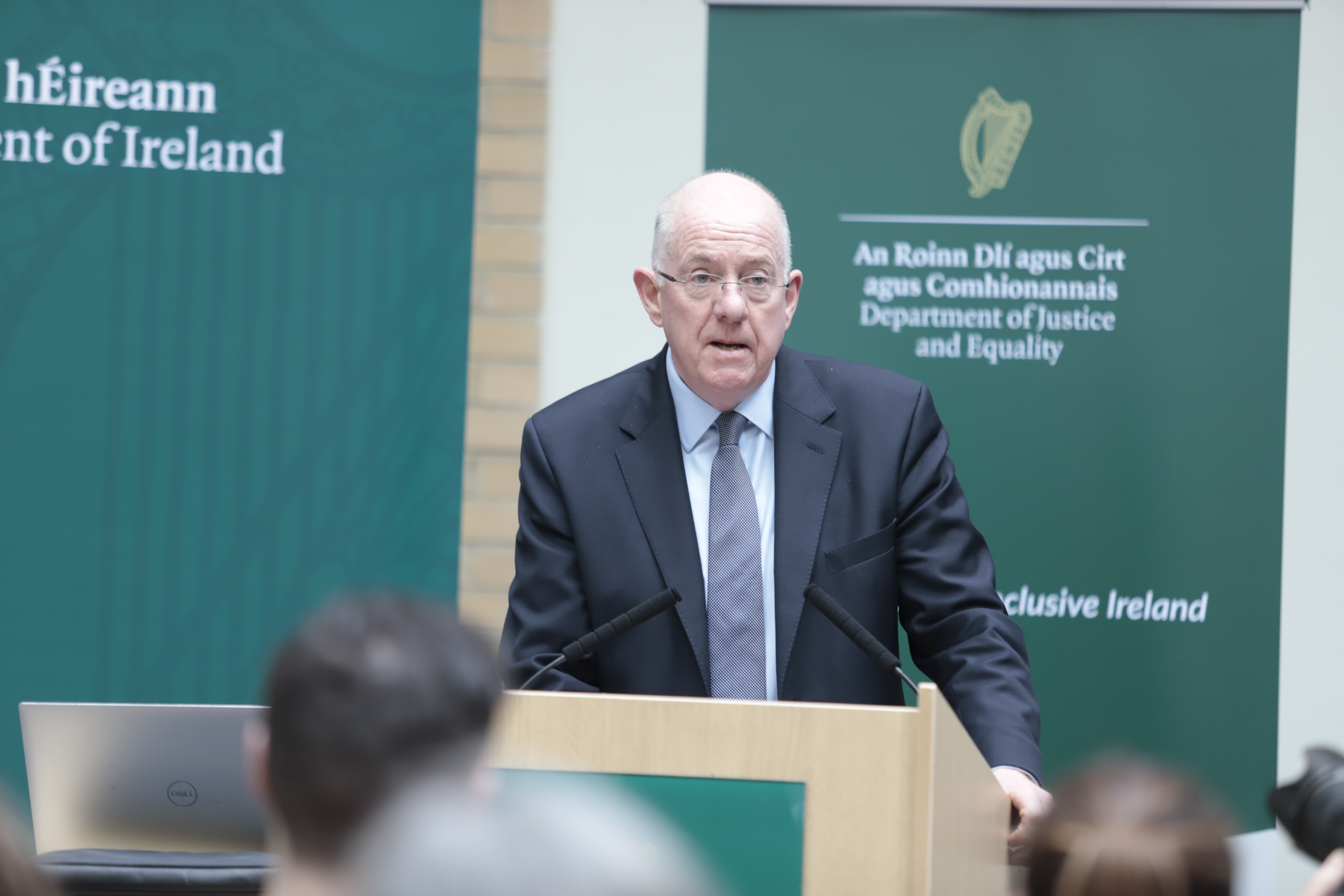
- ‘No Excuses’ features TV, cinema, radio, outdoor, social and digital advertising
- Campaign will run for 3 years up to 2021
Justice Minister Charlie Flanagan today launched a major national awareness campaign on sexual harassment and sexual violence. ‘No Excuses’ is a high impact media campaign to reach a national audience featuring TV, cinema, radio, outdoor, social and digital advertising.
The campaign will run for three years up to 2021 with initial TV ads broadcasting from tomorrow, Friday 10 May. The initial ads feature both male and female perpetrators and victims. They cover a number of scenarios ranging from sexual harassment in the workplace, unwanted physical attention at a bar, and an attempt to expose someone in a locker room, to an attempt to coerce a partner into unwanted sexual activity and finally an attempt to prey on someone not in a position to give consent.
Minister Flanagan said:
Research has shown that Ireland suffers from disturbingly high levels of sexual harassment and sexual violence. These ads highlight and help people recognise these behaviours and the many precursors to them. They call on us to reflect on our own reactions and to stop excusing sexual harassment and sexual violence. I hope that they will help all of us to hold such behaviours and their precursors totally unacceptable with the ultimate goal of reducing and preventing the incidences of sexual harassment and sexual violence, which affect the lives of too many people in our society both directly and indirectly.
On 8 March 2019, International Women’s Day, WIN International published statistics as part of the 2018 WIN World Survey ranking 40 countries on gender equality, sexual harassment and violence. The Irish research was carried out by Red C research. The survey reported that Ireland has the highest level of claimed sexual harassment in Europe with 32% of Irish women between the ages of 18 and 34 saying they had experienced some form of sexual harassment in the last 12 months. That was the highest level in Europe, and the second highest out of all 40 countries surveyed. Only Mexico fared worse.
Reported sexual offences are also increasing. Last year, 3,182 sex crimes were recorded by Gardaí, a 26% increase on 2017. While some of this may be attributable to an increased willingness to report crimes, which should be welcomed, the reported figure still only shows a fraction of the total prevalence of these crimes as it is generally accepted that sex crimes are chronically under-reported.
The Minister added:
The aim of this campaign is to make the public question our responses to a range of sexual harassment and potential sexual violence scenarios which are endemic in society, to consider the extent to which we excuse or ‘explain away’ incidents when we see them, and to ask us to stop excusing them if we do. We want the campaign to provoke us all to ask: ‘Just what is our attitude to sexual harassment and sexual violence? Are we tolerating it? Are we excusing it?’ And if we are, even if we are doing so only at the lower stages, are we facilitating a culture in which it is really hard for victims to be heard, to be helped, to be supported.
The campaign is being run by Cosc – the National Office for the Prevention of Domestic, Sexual and Gender-based Violence, which is part of the Department of Justice and Equality. The campaign is part of the Second National Strategy on Domestic, Sexual and Gender-based Violence 2016-2021. ‘No Excuses’ follows the domestic violence awareness campaign ‘whatwouldyoudo?’ which ran for three years from 2016 to 2018.
Funding of €950,000 has been secured to run the campaign in 2019. In addition, funding of €171,000 has been awarded under the Dormant Accounts Fund to localise the campaign message. It is intended, subject to the necessary funding being made available, that the campaign will continue and evolve for 3 years up to 2021.
The ads also direct viewers to the campaign website gov.ie/noexcuses. The website provides further information as well as advice on how to help in such situations.